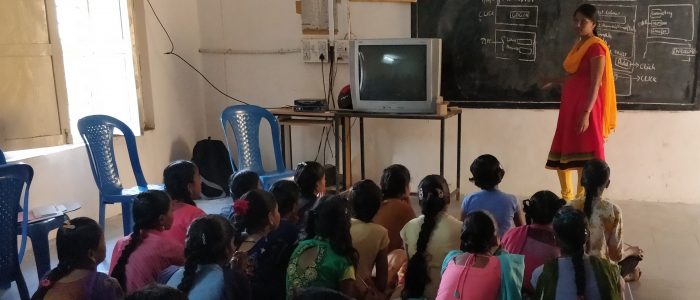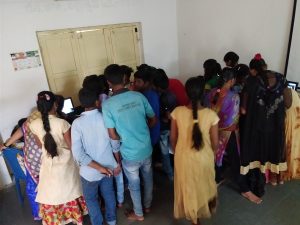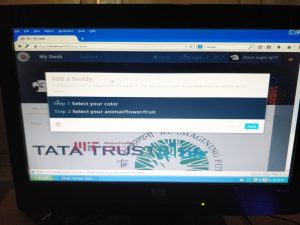When Peers Are Teachers
What happens when a person who speaks only English and Hindi goes to rollout CLIx modules in a school in which students speak Telugu primarily and understand English only slightly? The 8th standard students of ZPHS Chilkur, Telangana, not just tried to understand what I demonstrated about the CLIx platform themselves but taught their friends who needed help. In this series of blogs that focus on peer-learning, I discuss some observations and reflections from my Telangana field visits.
While the teacher training sessions of the rollout were exciting, the real fun began during my school visits that followed the trainings. We gave students their individual login IDs and passwords to explore the modules, and they diligently copied into their notebooks all that was written on the board.
But the test was whether, after the overview, students would be able to login without the teacher’s help.
There were only 5 functional computers for about 24 students, so the teachers first organised the students into groups. Group members quickly changed as students quietly slipped into groups of their preference. In a couple of groups, students who were struggling with technology were allowed to sit at the terminal and log in, while in three of the groups, those who were more tech savvy took charge of the keyboard, giving many instructions to their group members. The chatter was incredible.
Can you make out the five different groups in the photograph? Neither could I, and I was there! It is not just that students kept an eye on other groups’ terminals to ensure that all were moving at the same pace. But they gave someinstructions across groups: ‘Type in the missing ‘t’ in ‘htps://clixserver.’‘Leave out the space between ‘clix’ and ‘server’.’ The ones standing certainly did not shy away from instructing their peers at the keyboard. Sometimes there were three students of a group at the same keyboard. The process of logging in was fairly smooth.
Then they came to the Add Buddy feature. At one terminal, I explained why the student currently logged in could not add herself as buddy. Students of other groups listened in and spread the word. When one student could not find his animal on the list, another group’s member gave him the location. They clicked on Explore as instructed by their teacher. When they went into the module, just two students remembered that they were to enrol, but that was enough for all students to enrol as the word spread.
However, not all students shared their knowledge and definitely not in the same way. Some did not realise their peers needed help; some helped their friends in the add buddy step; and some others enabled their friends to complete the process on their own by giving instructions. The recipients too reacted diversely. Some just wanted their friends or teachers to take over while others insisted on completing the task themselves. The processes of peer transfer of even such incidental knowledge needs to be explored deeply to build systems that enable collaborative learning.
Anusha Ramanathan, Curriculum Consultant, English team, CLIx






